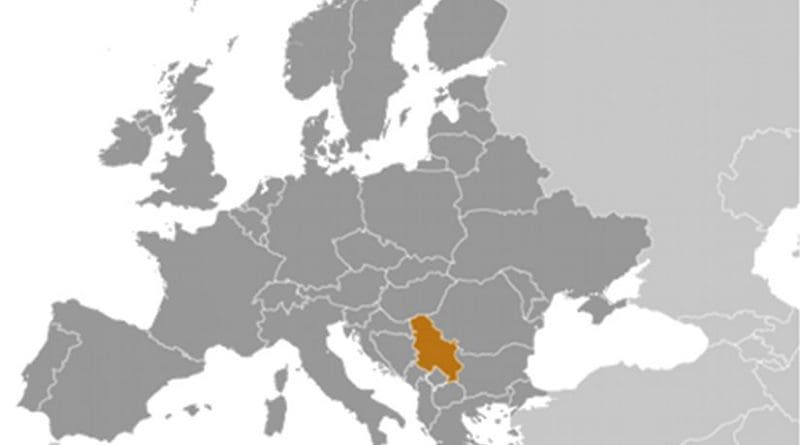Serbia: Newspaper Owner Goes On Hunger Strike
By Gordana Andric
Vukasin Obradovic, the founder of Vranjske novine and former head of the Serbian journalists’ association, went on hunger strike after being forced to close his newspaper after more than two decades.
Vukasin Obradovic, who started Vranjske novine, a respected independent weekly newspaper in the southern Serbian town of Vranje, announced on Tuesday that he was going on hunger strike in protest over his title’s shutdown and the decline of media freedom in the country.
Obradovic said he wanted to draw attention to the “meaningless of the fight for media freedom that I have been fighting for the last thirty years”.
His announcement came a day after announcement of the closure of Vranjske novine, which he founded in 1994, after it ran into financial trouble.
But campaigners say it has also been subjected to political pressures, while Obradovic has often been the target of pro-government media that labelled him a foreign mercenary.
Obradovic said that his decision to go on hunger strike was the move of a desperate man, a journalist, father and husband who is incapable of facing the reality to which all others are getting used to”.
During the rule of Serbian strongman leader Slobodan Milosevic, until 2000, Vranjske novine was the only independent press in southern Serbia.
Between 2010 and 2017, Obradovic also worked as head of the Independent Journalist Association of Serbia, NUNS, publicly condemning attacks on media freedom in the country that saw a sharp decline in free speech in recent years.
In February this year, he left NUNS, citing personal reasons, and moved back to his hometown Vranje from Belgrade.
In recent months, tax inspections have been investigating Vranjske novine’s finances. No charges have been pressed so far, nor fines issued.
NUNS said on Tuesday that the closure of Vranjske novine was the direct result of long-running political pressures on media freedom and represented “frightening news for media professionals”.
“Unfortunately, the number of media that report professionally in the interest of citizens and not the government is very low,” NUNS said in a statement.
It accused the authorities of using state institutions to suffocate the independent media by exerting pressure via state institutions, such as the tax authorities and the judiciary.
It said local media are even more vulnerable as they are also facing pressures from “local bullies”, and have a limited, poor market “that to a great extent depends on state authorities [for adveristing revenue]”.
“In this situation, no one – neither citizens, nor NGOs, nor international organisations – should be surprised if Serbia wakes up one day, very soon, without one professional media outlet,” NUNS said.
“We hope that the closure of Vranjske is not a sign that media freedom in Serbia, at least on local level, has faced a final defeat under pressure from the authorities,” it added.
Reporters Without Borders said in its latest World Press Freedom Index, published in April, that there have been significant setbacks in the media freedom situation over the past year in Serbia.
It also said that freedom of the press in Serbia has “declined ever since Aleksandar Vucic, Slobodan Milosevic’s former information minister, became Prime Minister in May 2014”.

